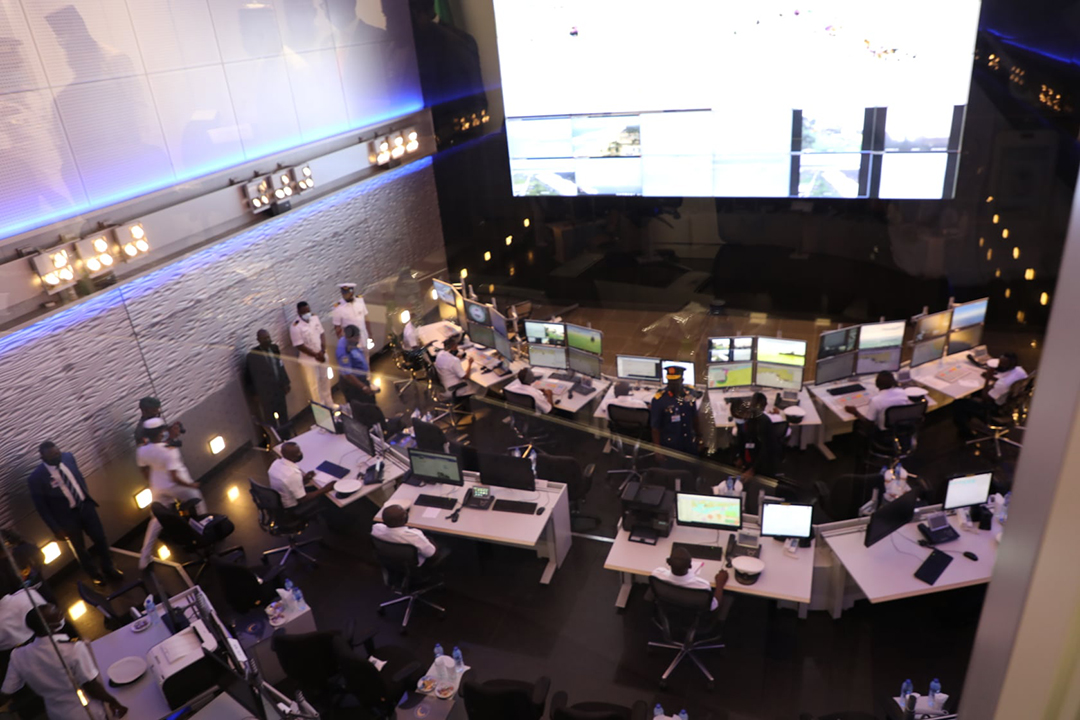Nigeria Shows That Emerging Technology Can Help Protect Waters
ADF STAFF
Nine crew members aboard a chemical tanker headed from Côte d’Ivoire to Cameroon were abducted by pirates in January as the ship sailed near Equatorial Guinea.
Piracy is one of many sea crimes prevalent in the Gulf of Guinea, and observers say emerging technologies can benefit countries struggling to protect their waters.
Nigeria, for example, once was designated as a piracy hot spot by the International Maritime Bureau (IMB). However, the country’s investment in technology-based infrastructure has helped it address piracy, illegal fishing, oil theft, drug and weapons trafficking, and other crimes.
“The Nigerian Navy has continuously acquired new assets and has further improved its capabilities to maintain a large fleet and to operate far beyond its territorial waters,” then-Chief of the Naval Staff, Vice Adm. Awwal Gambo, said in a 2022 report by The Guardian.
Over the past three years, Nigeria has deployed the Regional Maritime Awareness Capability (RMAC) system and the Falcon Eye maritime domain awareness system.
The RMAC receives, integrates, displays, records and distributes data from sensors and systems, including maritime and air surveillance radars, global positioning systems (GPS), the automatic identification system (AIS), cameras and Automatic Dependent Surveillance-Broadcast technology. Other tools can include drones and satellite tracking data.
Falcon Eye uses a number of radars, electro-optic systems and cameras operated from a command center to monitor the country’s waters and track vessel movements around the region. Former Nigerian Vice President Yemi Osinbajo commissioned Falcon Eye in 2021.
The system “will enable the Nigerian Navy [to] generate a comprehensive intelligence picture of activities within our maritime environment for further analysis before, in appropriate cases, dispatching a Nigerian Navy Ship for interdiction, investigation, and/or subsequent arrest of erring vessels,” Osinbajo said in a defenceWeb report. “It will also enable the Nigerian Navy to effectively combat any maritime crimes that could disrupt the conduct of maritime trade.”
Writing in The Conversation, Ifesinachi Okafor-Yarwood, a lecturer at the University of St. Andrews in the United Kingdom, noted the 2022 launch of Nigeria’s Deep Blue Project, a multipronged approach to confronting piracy. The $195 million project brings together a mix of ships, aircraft and drones to patrol the busy shipping lanes off Nigeria’s coast.
Other technologies being used to counter sea crimes in the region include:
* The Yaoundé Architecture Regional Information System, or Yaris, a secure digital monitoring tool developed through partnerships with the European Union Gulf of Guinea Interregional Network that enhances the capacity for seamless information exchange.
* SeaVision, a maritime domain awareness tool that helps professionals in an operations center track vessels at sea. Created in 2012 by the United States, this tool is used by about 25 African countries.
* Skylight, a maritime monitoring tool that tracks fishing vessels in real time and alerts authorities to suspicious behavior.
* Global Fishing Watch, a platform that presents AIS and vessel monitoring system (VMS) data through its carrier vessel portal and vessel viewer tools to help authorities identify and analyze fishing operations in their waters.
In many areas, it is illegal for vessels to turn off their AIS, which transmits vessel identification data several times per minute, and VMS, which tracks vessels in the shipping and fisheries industries. But many vessels involved in suspicious activities switch off these systems to avoid detection, an action known as “going dark.”
Recent technological innovations, such as synthetic aperture radar (SAR) and vessel infrared imaging radiometer suite (VIIRS), may help illuminate dark vessel activity, as Okafor-Yarwood and other experts noted in Marine Policy, a journal that studies ocean policies.
SAR is a more advanced version of traditional radar and can observe areas in any weather conditions at any time. It can be used in areas where vessels disable their tracking systems.
VIIRS collects visible and infrared images and global observations of the land, atmosphere and oceans. It can help identify vessels that illegally use lights to fish at night.
Okafor-Yarwood said it is in the best interests of Gulf of Guinea nations to cooperate and collaborate to address maritime security challenges.
“Technology can play a key role in this,” Okafor-Yarwood wrote in The Conversation. “But it’s vital that countries enhance technological know-how and ensure that external partners and businesses use the available technological services. This will be a big step towards a secure and collaborative maritime environment.”


Comments are closed.